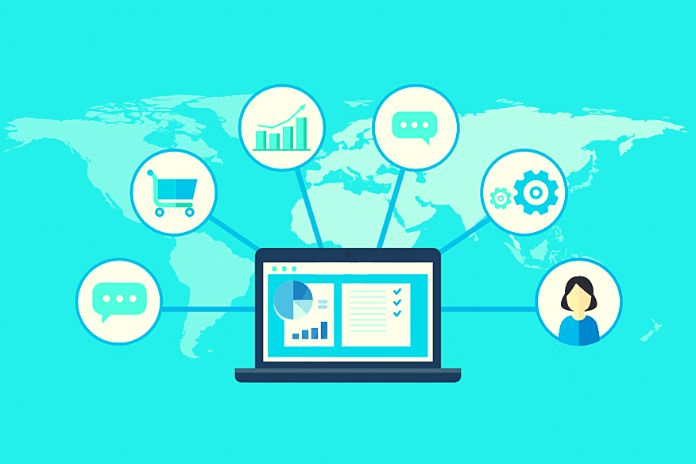CRM tools serve to organize routines, facilitate the execution of tasks, and the monitoring of all interactions made with customers. It is possible to record and analyze all customer information, thus generating robust data to create more effective strategies.
For example, CRM software is essential for the sales team to make smarter decisions, prioritizing communication and contact with the customer at the right time. After all, an organized sales dashboard can locate data and facilitate interaction with the lead, even if performed by different team members.
This feature makes CRM software make teams more productive. That’s why this tool has become essential for anyone who wants to draw up successful sales strategies and nurture relationships in a planned way.
What Are The Benefits Of CRM Software?
CRM tools, in general, are used by B2B companies (business between companies and companies). However, its use is not restricted to just this type of business. Any enterprise can use it as long as there is a need to manage relationships.
CRM software can help you:
- Track and organize lead and customer data and the communication history made with them;
- Centralize customer interactions made by different team members;
- Have a panoramic view of sales and performance;
- Discover trends and characteristic behaviors in the customer journey;
- Automate and optimize all the information collected, offering a report that is easy to interpret.
Which Team Should Use CRM?
Within companies, different sectors can benefit from using a CRM, such as…
Sales And Business Development Teams
For the sales team, the CRM can provide information and data that provide a complete view of prospects and leads. With this tool, it is possible to organize and streamline information tracking, giving salespeople time to act in the sales process and use the information collected to their advantage.
In addition, managers and leaders also benefit from the reports and records for elaborating new strategies, goals, and sales forecasts.
Marketing Teams
As for the marketing team, the CRM helps understand the sales pipeline and opportunities. By using specific tools, it is possible to visualize the behavior of each lead and, thus, guide new marketing actions.
This view allows marketing professionals to create specific segments for different types of action and communication.
Finally, every marketing team can benefit from qualifying and capturing new leads. CRM tools can serve as an instrument that helps in deciding the best way to “attack” each new potential customer and discovering patterns of behavior that convert the most.
Customer Service Teams
Through CRM, customer service and customer success teams can track all interactions with customers or potential buyers. This gives the team a complete view of how consumers interact with different departments, not just those related to the sales area.
With the help of CRM, any person on the team can have a broad and in-depth view of the issues that consumers have been presenting. This software also makes it possible to improve communication between these sectors, quickly directing specific cases to the most qualified professionals to assist.
In addition, currently, some CRM tools integrate with customer service and help desk software, avoiding the need for manual updates. That is, it is possible to automate the system so that the new information captured is automatically updated, allowing real-time data monitoring.
What Are The Types Of CRM?
Currently, there are different types of CRM software available in the market. After all, as we have seen, each tool has a specialty and meets different needs and demands.
However, there are three styles of tools that are best known and are on the rise in CRM, they are:
- CRM all-in-one: these tools emerged due to the demands of micro and small businesses. They are complete solutions that offer integrated resources related to the direct relationship with the customer;
- CRM focused on the target audience: in addition to customer relationship management, this type of tool has features aimed at sales, as well as contact, account, and pipeline management. They also have strategic functionalities such as, for example, the elaboration of reports and user panels. As they are aimed at larger teams, these tools are more robust and complex;
- Independent CRM: This type of tool generally comprises an independent platform or a series of modules. With this tool, marketing automation and customer support, for example, are implemented separately.
Without a doubt, anyone who wants to improve their relationship with customers should invest in a CRM.
